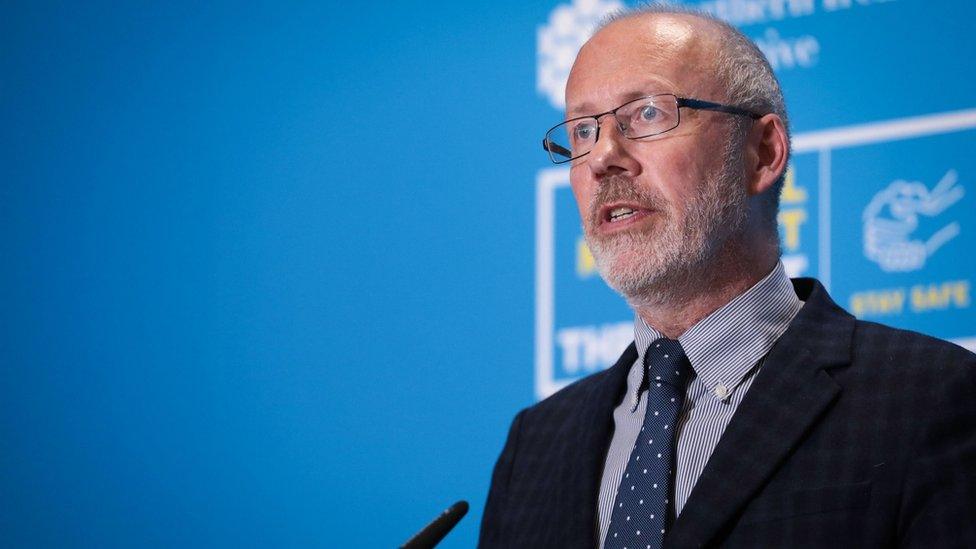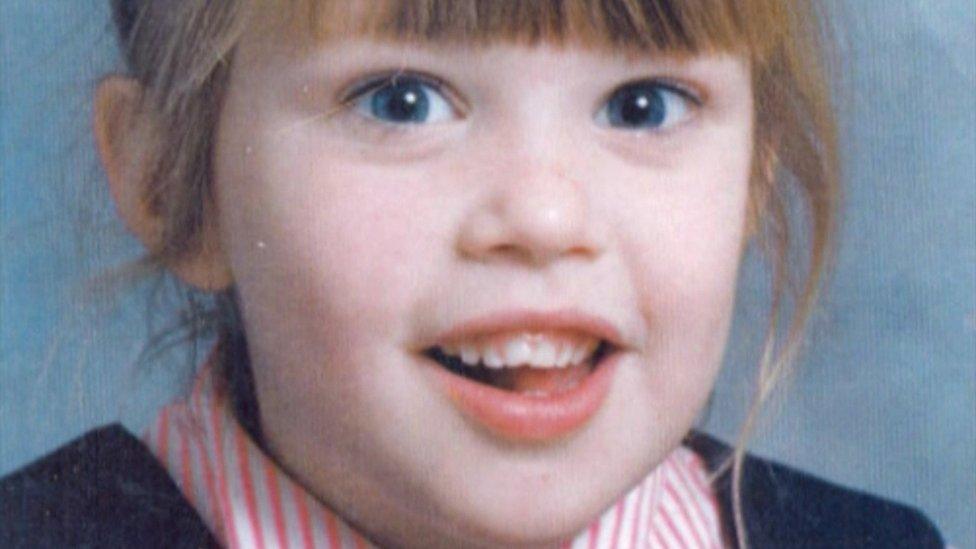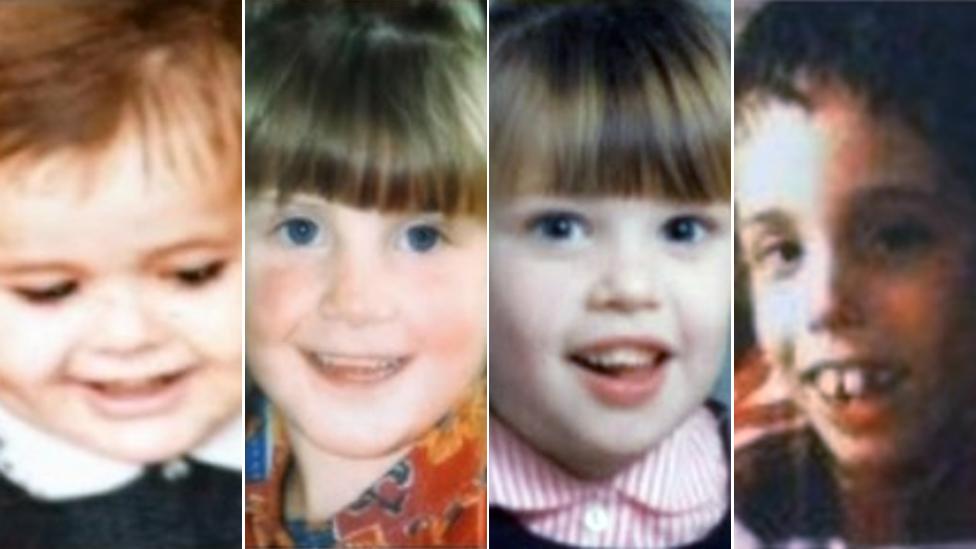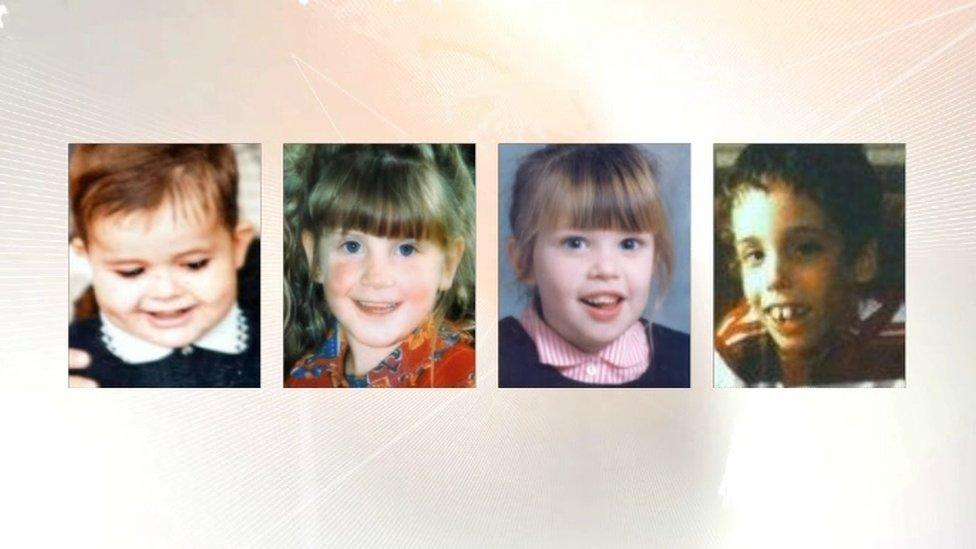Hyponatraemia: Prof Ian Young loses bid to block investigation
- Published

Prof Young, now NI's chief scientific adviser, was asked to provide an assessment in 2004
NI's chief scientific adviser has lost a High Court bid to block a General Medical Council (GMC) investigation of allegations he failed to tell the family of a nine-year-old girl who died about "failings" in her treatment.
Claire Roberts died from hyponatraemia, which is linked to a shortage of sodium in the blood, in 1996.
Professor Ian Young challenged the investigation into his actions.
On Tuesday, the High Court in London dismissed Prof Young's challenge.
In a statement following the ruling Prof Young's legal representative said he was "disappointed" with the decision.
Claire died at the Royal Hospital for Sick Children in Belfast shortly after she was admitted to hospital following several episodes of vomiting.
In 2004, the then Medical Director of the Royal Group of Hospitals, Dr Michael McBride, now chief medical officer, asked Prof Young to provide an independent assessment on whether hyponatraemia contributed to Claire's death.
The purpose of Prof Young's assessment was to inform Dr McBride's decision over whether to refer the matter to the coroner.
A public inquiry investigating the deaths of Claire and four other children from the condition found Prof Young did not inform Claire's parents - Alan and Jennifer Roberts - about failings in her care and gave "misleading" evidence to the original inquest into her death.
The inquiry found that four of the deaths were avoidable.
Prof Young was not involved in the treatment of any of the patients.

Nine-year-old Claire Roberts died in the city's Royal Hospital for Sick Children in 1996
In a January 2018 report, inquiry chairman Mr Justice O'Hara also said that Prof Young "shifted from his initial independent role advising Dr McBride to one of protecting the hospital and its doctors".
A new inquest, which was ordered following the inquiry, concluded in June 2019 that Claire's death "was caused by the treatment that she received in hospital".
Prof Young referred himself to the GMC shortly after the inquiry's report was published.
In January 2020, the GMC waived an earlier decision not to waive its usual five-year time limit for fitness to practise proceedings.
It said it was "in the public interest" for the allegations against Prof Young to proceed to an investigation.
Prof Young's barrister argued the original decision was "lawful and rational" and the reversal of that decision was "inconsistent and unreasonable".
Robert Kellar QC also said the second decision by the GMC "took into account irrelevant considerations and unfairly mischaracterised Prof Young's conduct".
'Material flaws'
On Tuesday, Mr Justice Holgate dismissed Prof Young's challenge saying it had "no legal basis."
The judge said that the GMC's original decision was "wholly unsustainable" and had failed "to appreciate key elements of the inquiry's findings going both to the seriousness of the allegations and the public interest issues involved".
Mr Justice Holgate said the GMC was right to conclude that there were "material flaws" in the original decision.
In a statement after the ruling, Prof Young's legal team said he "continues to acknowledge the ongoing suffering of Mr and Mrs Roberts and their family in relation to Claire's death in 1996 and subsequent events.
"He has apologised previously if any of his actions have inadvertently contributed to their distress, and would like to do so again".
The statement said Prof Young believes "that he has acted with integrity, to the best of his ability, to give clear and honest opinions which reflected his knowledge and understanding of the evidence at the time".
It added: "In particular, he denies completely any suggestion that he sought to mislead the coroner or Claire's parents in any way".
'On leave on health grounds'
The General Medical Council has confirmed to BBC News NI that it is continuing to investigate a number of doctors linked with the Hyponatraemia Inquiry.
A GMC spokeswoman said in a statement: "We are pleased the court has decided that our decision to investigate in this case was lawful and will now continue.
"This is a difficult time for all concerned and our thoughts remain with those families who lost children to hyponatraemia in Northern Ireland.
"As in any case, we will look at all the evidence before making a decision."
In January, the Department of Health confirmed to BBC News NI that Professor Young was on leave on health grounds.
Prof Young, who had been prominent in the Department of Health's handling of the Covid-19 crisis, had been absent from some media briefings prior to the announcement.
A spokesperson said other arrangements were in place until further notice.
The department said that Dr Declan Bradley, School of Medicine, Dentistry and Biomedical Sciences QUB, will represent Northern Ireland on the Scientific Advisory Group for Emergencies (SAGE) as deputy chief scientific adviser(interim) and will also chair NI's COVID-19 Modelling Group.
Professor Stuart Elborn, Faculty Pro-Vice Chancellor, School of Medicine, Dentistry and Biomedical Sciences QUB, will represent Northern Ireland on the UK's New and Emerging Respiratory Virus Threats Advisory Group (NERVTAG) and will also chair NI's Strategic Intelligence Group (SIG).
Related topics
- Published8 May 2018

- Published31 January 2018
